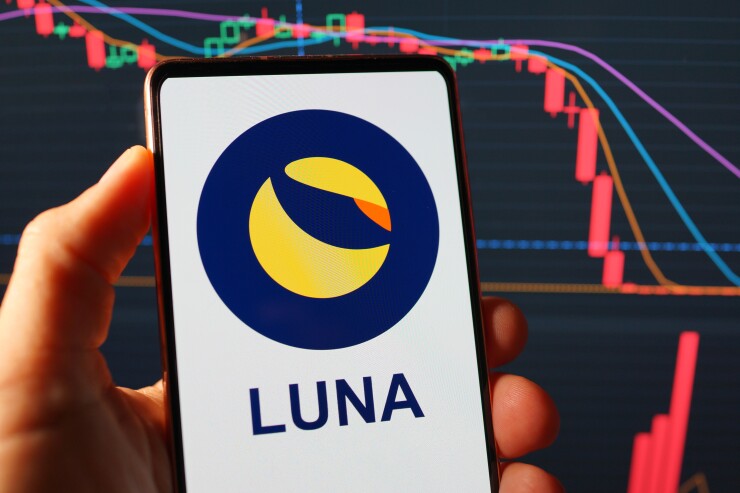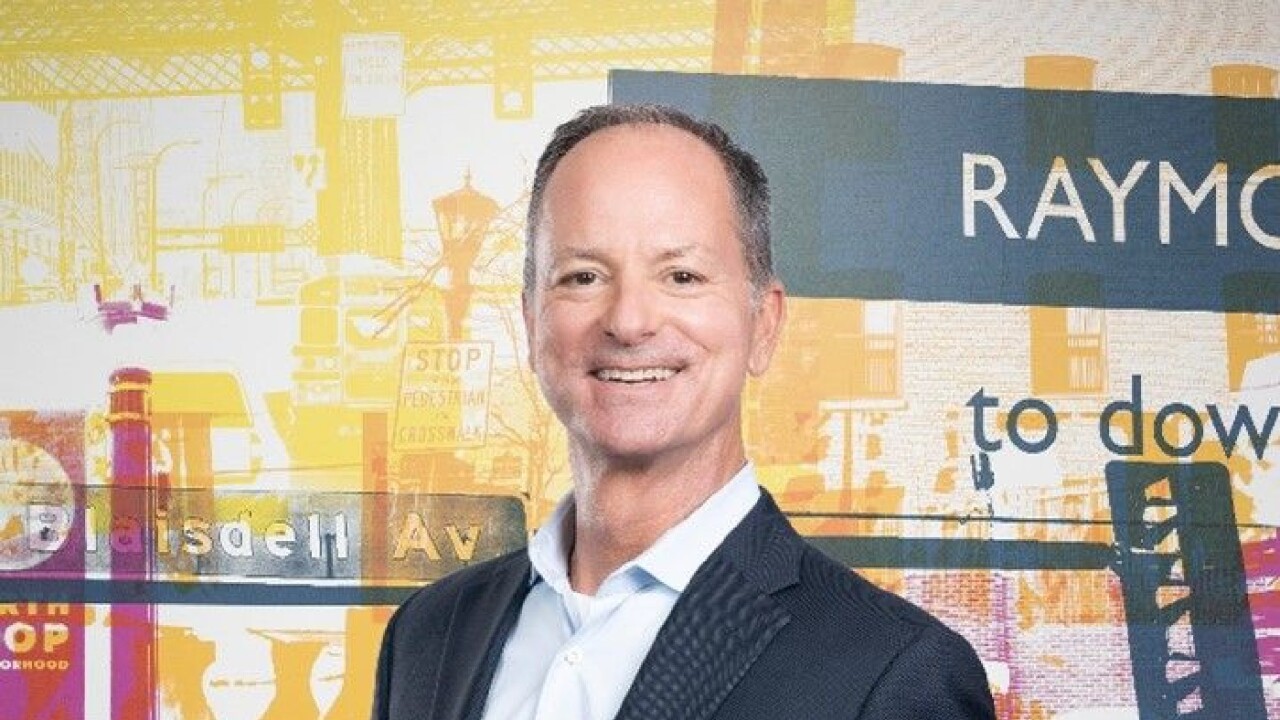
Do Hyeong Kwon, co-founder of Terraform Labs, on Tuesday pleaded guilty to two of the nine charges against him in a case about two cryptocurrencies that collapsed in May 2022 and erased $50 billion in market capitalization.
Kwon allegedly misrepresented to investors the functionality of the Terra blockchain and its products, including the stablecoin TerraUSD and its sister coin Luna, which prosecutors said led to the collapse.
In the U.S. District Court for the Southern District of New York, Kwon reportedly changed his plea on two of the nine charges — conspiracy to defraud and wire fraud — to guilty,
The plea will reportedly come with a $19 million penalty and a recommendation to the judge to sentence Kwon to up to 25 years in prison.
At the time TerraUSD and Luna collapsed, the episode amplified calls for stricter stablecoin regulation and carried significant implications for U.S. banks and credit unions as regulators continued to evaluate the risks and potential of digital assets.
The script has since flipped, and Kwon's guilty plea comes less than a month after President Trump
Understanding the Terra/Luna collapse
TerraUSD was an algorithmic stablecoin, designed to maintain a value of one U.S. dollar.
Unlike stablecoins backed 100% by cash or cash equivalents, TerraUSD relied on complex algorithms and trader activity, specifically its connection to Luna, to keep its $1 peg.
For example, if TerraUSD's price fell below $1, traders could buy discounted TerraUSD, swap it for $1 worth of Luna, and sell Luna for a profit, which would theoretically reduce TerraUSD supply and drive its price back up.
A significant driver of demand for TerraUSD was the Anchor Protocol, a decentralized lending platform on Terra's blockchain. Anchor offered exceptionally high interest rates, around 20% on TerraUSD deposits, which drew substantial inflows.
Analysts with the National Bureau of Economic Research, MIT and London School of Economics & Political Science found that Anchor's lending and borrowing rates were "heavily subsidized" by Terraform Labs, the company Kwon co-founded, meaning the protocol was never self-sustaining.
The level of subsidy reached $6 million daily by April 2022, becoming "increasingly unsustainable," according to
The system proved fragile. Concerns about Anchor's sustainability grew, and in early May 2022, large holders of TerraUSD began to withdraw their positions.
The run intensified when TerraUSD lost its $1 peg, falling to as low as 10 cents. This triggered a "death spiral": as TerraUSD holders converted their tokens to Luna, the supply of Luna vastly increased, causing Luna's price to plummet and further devaluing TerraUSD.
The total market capitalization of TerraUSD and Luna collapsed by over $50 billion, according to the indictment.
Allegations of deception and manipulation
In
According to the indictment, Kwon's misrepresentations included:
- Lying about the effectiveness of Terra Protocol's algorithmic mechanism that supposedly ensured TerraUSD's stability.
- Misrepresenting the independence and governance of the Luna Foundation Guard (LFG), which he publicly announced in January as an independent body tasked with deploying billions of dollars of financial reserves to support TerraUSD's peg. Kwon secretly controlled and allegedly misused the funds.
- False claims about the decentralized nature and manipulation of a stock exchange mirroring application (named Mirror Protocol) on the Terra blockchain. Kwon claimed Terraform played no role in Mirror's governance. Prosecutors alleged he and Terraform secretly maintained control and manipulated the prices of assets in the application.
- Falsely claiming a South Korean payment application (named Chai) processed billions in transactions on the Terra blockchain. It actually used traditional financial networks, and Kwon allegedly used an automated process to copy transactions onto the Terra blockchain.
After the May 2022 crash, Kwon allegedly continued his misconduct, engaging in a deceptive public relations campaign, laundering money and evading law enforcement.
He was arrested in Montenegro with a fake passport, in a country without an extradition treaty with the United States.
The SEC
Implications for traditional banking
The Terra collapse underscored traditional financial regulators' concerns about stablecoins, leading to calls for regulated banks to issue them.
Michael Hsu, the acting comptroller at the Office of the Comptroller of the Currency at the time of the Terra/Luna collapse, said at the time the meltdown should be a "wake-up call" and a "strong reminder that hype is not harmless."
In the intervening years, the power dynamics in stablecoin have shifted in favor of crypto interests.
Last month, President Trump signed into law the GENIUS Act, which creates a legal framework for banks to handle stablecoins, most notably, enabling them to issue stablecoins that can be used for payments.
While some large banks, including JPMorganChase, Bank of America and Citigroup, have expressed interest in issuing their own stablecoins or participating in the market, the legislation faced significant
The GENIUS Act prohibits stablecoin issuers from paying interest or dividends. However, concerns remain about potential workarounds such as rewards for staking that could still draw deposits away from banks.
Kwon's outlook prior to Tuesday
During his arraignment in January 2025 (following extradition from Montenegro the previous month), Kwon pleaded not guilty to the eight charges against him. He also later pleaded not guilty to the money laundering charge.
The government had anticipated voluminous discovery, consisting of multiple terabytes of data, including internal company records, trading data and Kwon's electronic devices and communications, according to court records.
The trial had been scheduled for February 17, 2026, and the government estimated the trial would last four to six weeks. Kwon's plea ensures the case does not go to trial and that evidence that would have been used against him will not be brought forward in court or become public.





